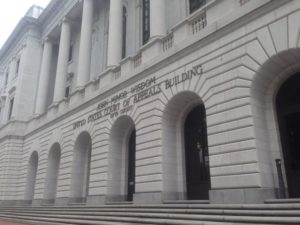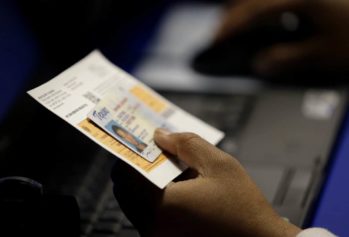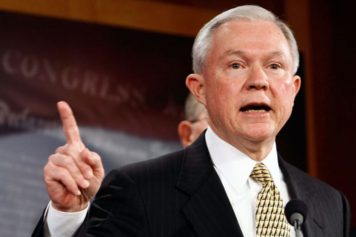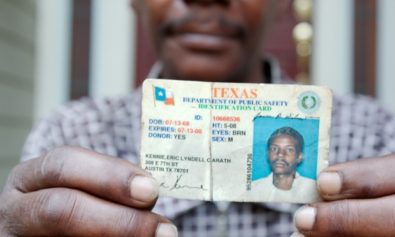
The 5th Circuit U.S. Court of Appeals in New Orleans. Andy Grimm NOLA.comFederal Appeals Court to Restudy Texas Voter ID Law
The 5th Circuit U.S. Court of Appeals will rehear arguments Tuesday on the controversial Texas voter identification law ruled unconstitutional by a three-judge panel last year.
The legislation is considered one of the strictest in the country, requiring residents to show one of seven forms of identification at the polls, including a concealed gun permit or military ID. The 5th Circuit panel said the law violates the Voting Rights Act by discriminating against African-Americans and Hispanics, who are less likely to possess the necessary identification.
The U.S. Supreme Court has given the appeals court until July to make a decision that will undeniably influence the coming presidential election in November, according to the Washington Post.
“If, on or before July 20, 2016, the Court of Appeals has neither issued an opinion on the merits of the case nor issued an order vacating or modifying the current stay order, an aggrieved party may seek interim relief from this court by filing an appropriate application,” the April court order said.
The high court upheld the Texas law in 2014 in an emergency interim decision ahead of the year’s mid-term elections. Justice Ruth Ginsberg drafted a six-page dissent, backed by Justices Sonia Sotomayor and Elena Kagan, The New York Times reported.
Ginsberg indicated that the rushed decision was merely a safety measure to prevent voter confusion on Election Day.
She noted the excessive burden placed on those who lack approved forms of ID, who may obtain an “election identification certificate” from the Texas Department of Public Safety. “…but more than 400,000 eligible voters face round-trip travel times of three hours or more to the nearest DPS office,” she wrote. “Moreover, applicants for an election identification certificate ordinarily must present a certified birth certificate. A birth certificate, however, can be obtained only at significant cost —at least $22 for a standard certificate sent by mail.”
State attorneys have argued that the law is necessary to prevent voter fraud.
“The intent of this law is to protect the voting process in Texas, and we will continue to defend this important safeguard for all Texas voters,” Attorney General Ken Paxton said.
A federal judge declared the law unconstitutional in 2014, comparing it to the poll taxes of Jim Crow-era South. U.S. District Judge Nelva Gonzales Ramos wrote the law, “has an impermissible discriminatory effect against Hispanics and African-Americans, and was imposed with an unconstitutional discriminatory purpose.”
The Texas Secretary of State website lists the following seven forms of identification:
- Texas driver license issued by the Texas Department of Public Safety
- Texas Election Identification Certificate issued by DPS
- Texas personal identification card issued by DPS
- Texas concealed handgun license issued by DPS
- United States military identification card containing the person’s photograph
- United States citizenship certificate containing the person’s photograph
- United States passport
State-employee and university-issued IDs and tribal identification cards are not acceptable for Texans. Attorneys for the American Civil Liberties Union estimate that more than 600,000 registered voters in Texas do not have one of the required IDs.
Former Texas Gov. Rick Perry signed the law into action in 2011, but the series of legal battles jump-started in 2013, when the U.S. Supreme Court struck down a portion of the Voting Rights Act requiring states with a history of discrimination to pre-clear any voter laws with federal officials.
State electoral laws are under increased scrutiny leading up to the November election, when 17 states will enforce voting regulations for the first time in a presidential election. This week the state of Wisconsin faces attorneys who say its suppressive voter law would disenfranchise 300,000 mostly minority, poor, elderly and student residents. Similar fights are happening in North Carolina and Virginia, states with large Black populations, this year.


